QuestionQUESTION: Rivulus cylindraceus
Hi Mark,
Sorry to keep picking on you, but you were the only expert who listed anything at all about killifish.
I found some Rivulus cylindraceus for sale on the net which is also a Cuban species, and would like to add them to my aquarium. They offer both fish and eggs.
My Limia Vittatas as I understand it will not eat their young, and I'm wondering about compatibility. If I get them, should I take precautions to protect any future Limia fry, or even Rivulus fry from predation?
I looked them up as best I could, but the available information is very limited.
What does 'Not a seasonal killifish' mean?
The tank is progressing along.
The ammonia level is stable and 'ideal',
while the nitrite level rose to 'critical if permanent',
so I did a 30% water change and will check again tomorrow.
Thanks as always,
Luis
Hi Mark,
I found some Rivulus cylindraceus for sale on the net which is also a Cuban species, and would like to add them to my aquarium. They offer both fish and eggs.
My Limia Vittatas as I understand it will not eat their young, and I'm wondering about compatibility. If I get them, should I take precautions to protect any future Limia fry, or even Rivulus fry from predation?
I looked them up as best I could, but the available information is very limited.
What does 'Not a seasonal killifish' mean?
The tank is progressing along.
The ammonia level is stable and 'ideal',
while the nitrite level rose to 'critical if permanent',
so I did a 30% water change and will check again tomorrow.
Sorry to keep picking on you, but you were the only expert who listed anything at all about killifish.
Thanks as always,
Luis
ANSWER: Luis-
Always happy to help. Non-seasonal means that the killifish will breed at any time, and their fry will hatch about 4 weeks after. Seasonal killifish hail from Africa. They breed once a year, and when the climate dries up the lakes/swamps, the eggs remain dormant until the rains come the following year, hatching the eggs. When hatching killis, you really should look to keep them separate from other fish in the tank. You'll need to feed them a higher concentration of protein for the first couple of weeks. I would suggest buying the fish, not the eggs, only because it'll make for an easier introduction into the fish that are already going to be in your tank, rather than try to introduce fry into the tank. Good luck, sounds like everything is going according to plan. Keep me posted.
---------- FOLLOW-UP ----------
QUESTION: Hi Mark,
I have a floating fish hatchery in the tank with 2 baby fish I found swimming in the tank. Probably guppies from a complementary pair the seller of the Limias included in the order.
The Limias and the guppies don't eat their young, so I just net them up and out them in the hatchery, but what about the Rivulus Cylindraceus?
Would they eat any young fry in the tank?
There are 4 plastic spawning grasses floating, but since killifish begin with KILL, I'm wondering it I should separate them from the breeding Limias.
Thanks, Luis
AnswerYour killifish will be fine. Non-annual killifish are actually very maternal, and they'll spend time guarding the eggs until they become fry. Leave them in the tank. They may eat a few of the fry, but as they breed more and more, they'll stop doing so. Its their way of learning about their fry.

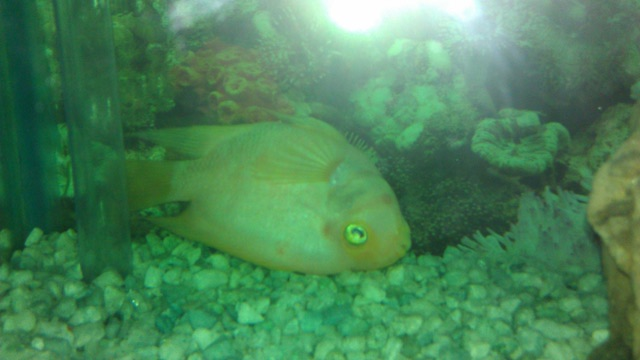 my 3 year old parrot stays upside down in the bottom of the tank.
Question
parrot laying upside d
Hello,
My parro
my 3 year old parrot stays upside down in the bottom of the tank.
Question
parrot laying upside d
Hello,
My parro
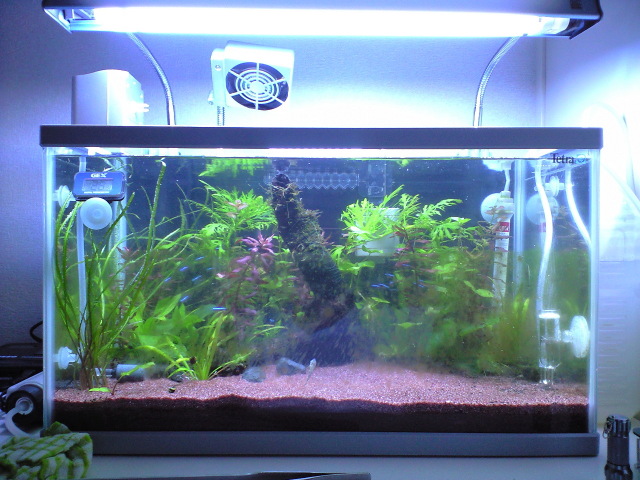 Very shy cardinal tetras and water questions
Questionaqua
QUESTION: Hi , its been a month tha
Very shy cardinal tetras and water questions
Questionaqua
QUESTION: Hi , its been a month tha
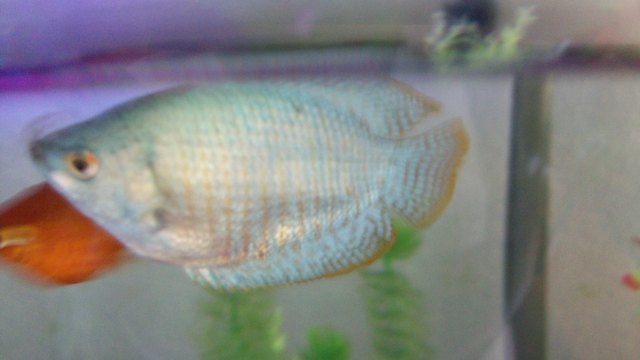 Putting a Female Dwarf Gourami with my 2 Male Dwarf Gouramis
QuestionGouramis
QUESTION: Hello! Have a few Gou
Putting a Female Dwarf Gourami with my 2 Male Dwarf Gouramis
QuestionGouramis
QUESTION: Hello! Have a few Gou
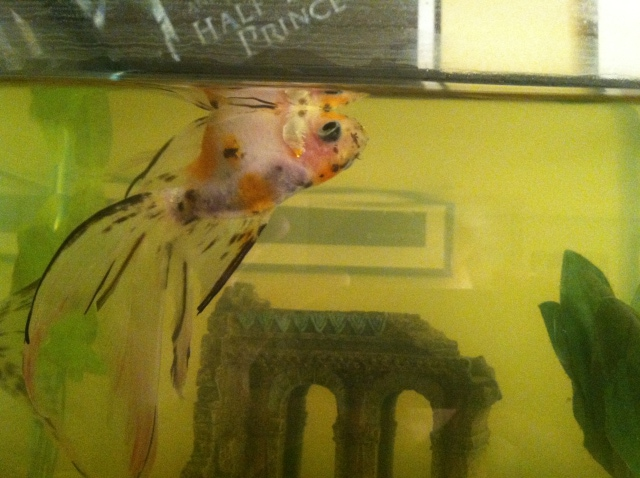 Swim Bladder damage in fantail
Question
Tommy the upside down
Dear Jaymie,
I
Swim Bladder damage in fantail
Question
Tommy the upside down
Dear Jaymie,
I
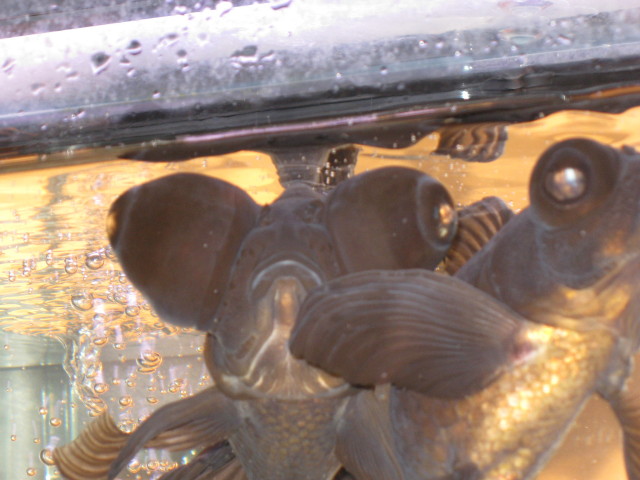 black moor eye problem
QuestionQUESTION: I have noticed today a white spot (pi
black moor eye problem
QuestionQUESTION: I have noticed today a white spot (pi